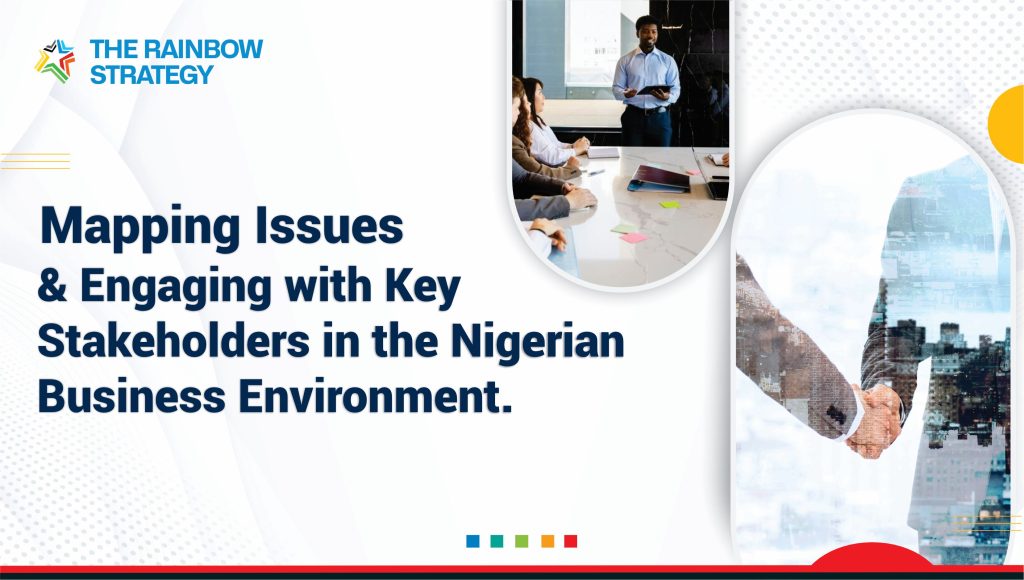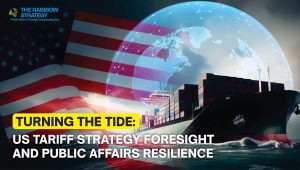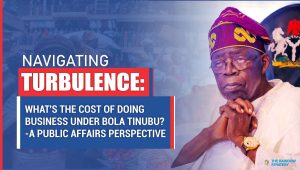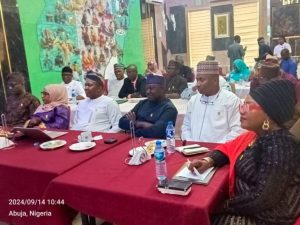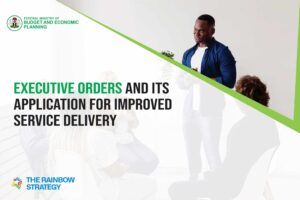In the intricate tapestry of Nigeria’s business landscape, where policy shifts are frequent and stakeholder interests are as diverse as the nation’s rich cultural heritage, businesses face the challenge of not just understanding the issues at hand but also effectively engaging with the right stakeholders. Navigating this complex terrain requires a deep understanding of the issues that impact a business, a strategic approach to stakeholder mapping, and, most importantly, an authentic narrative that resonates with all parties involved.
Understanding the Terrain: The Complexity of Nigeria’s Business Environment
Imagine a typical Lagos morning—a bustling city waking up to the sounds of honking cars, market women calling out their wares, and corporate executives hurrying to their offices. Amidst this daily hustle lies the heart of Nigeria’s business ecosystem, where public policy, regulatory frameworks, and economic realities intersect. A quick glance at the front page of a national newspaper might reveal stories about new tax regulations, government incentives for local manufacturing, or a fresh policy stance on foreign exchange rates.
For a business executive in Nigeria, these headlines are not just news; they are signals of potential shifts that could impact everything from supply chains to market access. The recent Executive Orders by President Tinubu, aimed at economic stabilization and job creation, illustrate how quickly the policy environment can change. These changes demand an agile response from businesses, particularly in how they engage with government bodies, regulators, and other key stakeholders.
The Power of Stakeholder Mapping: Identifying Who Matters
Stakeholder mapping is the process of identifying, analysing, and prioritising stakeholders—those who have an interest in or influence over a company’s operations. In Nigeria, stakeholders range from government agencies like the Federal Ministry of Finance and the Federal Inland Revenue Service (FIRS) to civil society organizations, trade unions, and local community leaders. Each stakeholder has its interests, motivations, and concerns, making it crucial for businesses to map these relationships meticulously.
Consider the example of the Nigerian Communications Commission (NCC) and its regulatory oversight over telecom operators. When the NCC announced a directive mandating telcos to reduce data costs to promote digital inclusion, a client, one of the telecom companies, was faced with the challenge of compliance while maintaining profitability. Through a combination of stakeholder analysis and mapping, influential key stakeholders were identified within the NCC, the Ministry of Communications and Digital Economy, and relevant legislative committees, and they were engaged through proactive dialogue and evidence-based advocacy to deliver successful outcomes.
Engagement as a Strategic Tool: Building Trust Through Authentic Narratives
Engaging stakeholders is more than just having meetings or sending out press releases; it is about crafting a narrative that resonates with them. In Nigeria, where trust in institutions can often be low, authenticity is key. The story must be relatable and grounded in shared values.
Let’s take the case of Lafarge Africa, a leading cement manufacturer in Nigeria. When Lafarge sought to introduce a new sustainability, initiative aimed at reducing carbon emissions in its plants, it understood that merely talking about the benefits of the initiative wasn’t enough. The company needed to craft a narrative that would resonate with stakeholders—from government regulators who were focused on environmental compliance to local communities concerned about air quality.
Lafarge’s approach was to position the initiative not just as a corporate responsibility effort but as a commitment to the future of Nigeria. They told a story of a company deeply rooted in the Nigerian soil, working not just to build infrastructure but to build a sustainable future for generations to come. By engaging with stakeholders through community town hall meetings, partnerships with environmental NGOs, and collaborative discussions with regulators, Lafarge was able to build trust and align interests. This engagement strategy proved effective in gaining the necessary buy-in and support for their initiative.
Lessons in Stakeholder Engagement: The Story of an Emerging Sector
The Renewable Energy sector in Nigeria offers another compelling narrative. With the Federal Government’s push towards diversifying the energy mix and reducing dependence on fossil fuels, there has been a growing interest in solar energy solutions. However, the regulatory environment for renewable energy has been fraught with ambiguity, leaving businesses uncertain about potential risks and opportunities.
This case study will further illustrate the point. When a consortium of solar energy companies sought to enter the Nigerian market, they quickly realised the need to engage with stakeholders beyond the typical regulatory bodies. They mapped out a wide range of stakeholders, from the Nigerian Electricity Regulatory Commission (NERC) to local distribution companies (DisCos), financial institutions, and even community leaders in off-grid areas where solar solutions were most viable.
Through strategic engagement, and working with the consortium, a compelling narrative was crafted that centred around “Energy for All,” emphasizing the social and economic benefits of affordable and reliable electricity. They highlighted stories of rural communities gaining access to electricity for the first time, local businesses thriving due to reduced energy costs, and the government’s role in creating an enabling environment. This narrative resonated with stakeholders, leading to fruitful partnerships, policy support, and ultimately, market success.
A Call for Strategic Engagement
In the Nigerian business environment, where change is the only constant, businesses must go beyond superficial stakeholder engagements. They need to understand the deeper issues at play, map out who matters, and engage with authenticity. Crafting a narrative that connects with stakeholders’ interests and values can bridge gaps, build trust, and foster collaboration.
Conclusion
Whether it is navigating regulatory changes, responding to public policy shifts, or driving innovation in emerging sectors, businesses that excel in stakeholder engagement are those that can tell their stories in a way that not only informs but also inspires. And in a country as dynamic and diverse as Nigeria, those are the stories that will shape the future of business and development.
In case you are wondering how you or your organisation should go about these? Please talk to a certified public affairs consultant like the team at The Rainbow Strategy for tailor-made solutions.


